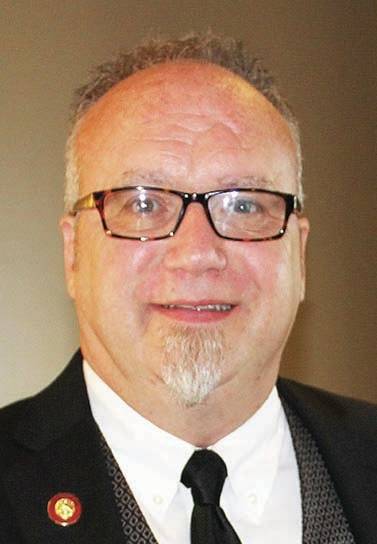Voter suppression and claims of voter fraud
Published 10:17 am Monday, November 6, 2017
Kris Kobach has worked day and night to suppress (some) Americans’ right to vote in his state of Kansas, where he’s the Republican secretary of state. He’s working even harder to take his malicious intent on the road, across the country, and with the president’s blessing.
His misbegotten efforts are all based on the insidious lie of rampant vote fraud.
As head of President Trump’s benignly named Presidential Advisory Commission on Election Integrity, Kobach’s efforts have been the subject of lawsuits, fines and court orders that haven’t gone his way. As a result, the true intent of Kobach and a stacked commission is clear: to make it as difficult as possible for Americans likely to support the other party to cast a vote.
All of America should be horrified at this win-at-all-costs attempt to deny citizens their constitutional right to vote. We’ve been here before. African Americans and women of all colors fought and shed blood to secure this right. It’s undemocratic, un-American, and the shameful response from an administration in which up is down, black is white, and vote fraud supposedly is running amok across the land, perpetrated by people who are noncitizens. That’s the president’s rationale for losing the popular vote in November.
Voter fraud in U.S. elections is, for all intents and purposes, a myth. But it is the politically motivated basis for voter suppression efforts in states across the country, including, unfortunately, Florida. This is where early-voting hours have been cut and polling locations curtailed. And, ex-felons still must petition the state to regain their ability to vote, a cumbersome and arbitrary process.
In its May 2017 analysis, Noncitizen Voting: The Missing Millions, The Brennan Center for Justice determined that, contrary to the president’s claims, there were extremely few instances of noncitizens voting in 2016.
The Brennan Center is based at New York University’s School of Law. Myrna Pérez is the Center’s director of the voting right and elections project and a co-author of the study. “Instances of such fraud were very, very rare,” she told the Editorial Board.
The bipartisan commission has been plagued with controversy from its creation in May. Democratic members complained that they were being left in the dark as to the commission’s inner workings, including who the staffers are; the identity of one now ex-staffer, Ronald Williams II, did come to light after he was arrested on 11 charges of possessing and distributing child pornography; in July, a judge upheld a $1,000 fine against Kobach for intentionally misleading the court during his fight to make voter registration more restrictive in Kansas; the body faces at least 13 lawsuits.
The commission was dealt its latest setback this month. A federal court rightly ordered excerpts of Kris Kobach’s testimony be disclosed along with other documents obtained by the ACLU, which challenged his voter-registration scheme in his home state. It revealed a methodical plan to eviscerate that National Voter Registration Act of 1993, which broadened opportunities for citizens to register to vote.
Pérez said that though this commission has no formal authority to erect hurdles to voting, “The bigger problem is the fact that there are a number of people who are not participating in voting who are eligible.” Absolutely correct. Targeted Americans must take their right to vote as seriously as those who want to take it from them.
The Miami Herald




